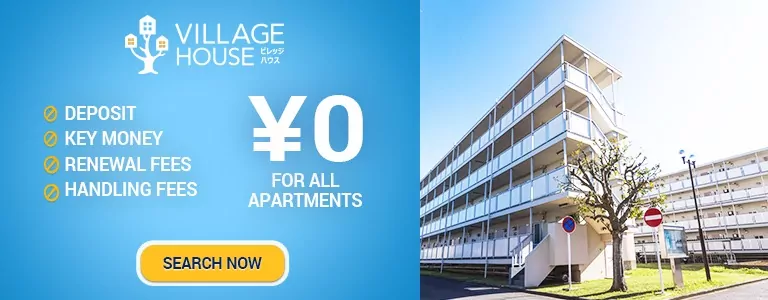When you want to rent an apartment, you may have some questions like “Who should be my guarantor?” or “Are there any alternatives to finding a guarantor?”
When applying to rent an apartment, you will often be asked to provide a guarantor who will pay your rent if you are unable to do so. Many tenants who cannot find a guarantor use guarantor companies.
In this post, we will introduce the tenant screening process for apartment renting, the terms and liability coverage of a guarantor, and what to do if you cannot find a guarantor. If you want to know more about this topic, this article is a must-read.
What is Tenant Screening and How Does it Work?

Only people who have passed tenant screening can rent a property. The screening process includes the following checks:
- Are they a decent person?
- Do they have the financial capability to pay their rent?
- Do they have a guarantor?
Landlords do not want to rent their properties to noisy or messy people. They also want to avoid people who could be delinquent in paying rent. Additionally, they will check whether the guarantor will pay in the case of a default.
The purpose of tenant screening is to check whether there are any concerns about renting out property to a person. In some cases, the screening is not conducted by the landlord, but by an outsourced management company.
Requirements for Guarantors

A guarantor is someone who pays on behalf of the tenant if they are unable to pay their rent or repair costs for broken fittings. Therefore, the guarantor cannot just be any random person.
The typical requirements for a guarantor are as follows:
- Has a stable job
- Financially capable of paying the rent
- A relative within the second degree of kinship (parents, siblings, grandparents, grandchildren, etc.)
- A relative within the third degree of kinship (uncles, aunts, etc.)
- Residing in Japan
Guarantors will be financially responsible for the tenant, so it is important that they have the means to pay the rent. The tenant screening process may differ depending on the landlord or management company, but the most important condition they look out for is whether the tenant has a stable source of income or financial support.
Guarantors will be required to submit documents to prove personal details, such as age, occupation, and annual income. In some cases, proof of income will also be required.
Due to the heavy responsibility involved, it is often the case that guarantors are family members of the tenant. Additionally, it is usually a requirement that guarantors have to be residents of Japan so that they are available in the case of an emergency.
What Relationship to the Applicant Should a Guarantor Have? Is it Okay to Choose a Friend as a Guarantor?

In most cases, guarantors have to be within the third degree of kinship of the tenant. However, some landlords will accept a friend who has a stable income and is easily contactable as a guarantor.
Be advised that if you ask a friend to be your guarantor, it may have a negative impact on your tenant screening. Hence, the real estate agent in charge may suggest alternatives, such as using a guarantor company or asking a relative for help. If you really want to go with a friend as your guarantor, it is best to consult your real estate agent first.
But please keep in mind that financial matters may ruin a friendship, so carefully consider when asking a friend to be your guarantor.
The Responsibilities of Being a Guarantor for Renting

Now then, let’s go through a guarantor’s liabilities:
- No right to refuse payment requests
If a tenant defaults on their rent, it is common sense to think that the landlord should first request payment from the tenant. However, if the landlord seeks payment from the guarantor instead, they do not have the right to refuse. In other words, the guarantor will have to immediately pay for the rent.
- No right to refuse seizure of assets
If a guarantor cannot pay the rent after being requested to do so, their assets (savings, properties, etc.) will be seized. Once again, the guarantor has no right to appeal for the tenant’s assets to be seized first.
- No division of financial liability
In a rental contract, it is possible to designate more than one guarantor. It is usually assumed that the responsibility for payment can be shared equally between joint guarantors, but that is not the case. Even if a contract has two guarantors, if the tenant and the other joint guarantor are unable to pay, responsibility for payment will be borne solely by the remaining guarantor.
If You Do Not Have a Guarantor, Use a Guarantee Company

Generally speaking, you must have a guarantor to sign a rental contract. However, if you use a guarantor company, the guarantor company will act as your guarantor, so you do not have to find one.
If you want to find a property where a guarantor company is available, look for a “no guarantor required” property. On that note, though “no guarantor required” means that it is not necessary to designate an individual as a guarantor, you are still required to have a company as your guarantor.
However, in order to use a guarantor company, you will have to go through another screening process. The guarantor company will check your personal details, including your annual income and credit information. If you receive their approval, the company will act as your guarantor and you can proceed to the screening by the landlord or management company.
Guarantor companies will charge you the following:
- An initial fee of 10,000 to 20,000 yen, or 0.3 to 1 month’s worth of rent when the contract is signed
- A renewal fee of 10,000 to 20,000 yen, or 1 to 1.5 months’ worth of rent when the contract is renewed
It is important to plan your budget accordingly when using a guarantor company, as you will have to take into account both the initial and renewal fees.
Other Alternatives to Finding a Guarantor
If you are unable to find a guarantor and have difficulty using a guarantor company, you have two options that you can consider.
① Choose a property that does not require a guarantor
With Village House, you can sign a contract without a guarantor or guarantor company.
In some cases, landlords will relax the terms for properties that have been vacant for a long time, so they may not require you to have a guarantor or a guarantor company. If you cannot find a guarantor, try consulting with your real estate agent.
② Consider a shared house
Share houses typically do not require a guarantor. This is because a shared house is “a community where everyone is supposed to exercise good manners and refrain from causing trouble to other residents, so as to build a good living environment together”. If you want to live in a lively environment, you may want to consider moving into a shared house.
When applying to rent an apartment, you will usually be required to designate a guarantor or guarantor company that will pay your rent if you become unable to do so. However, if you are concerned about this requirement, please feel free to contact Village House! We do not require any deposit, key money, guarantor, guarantor company, or additional fees (commissions, renewal fees, etc.)*.
*A deposit and a guarantor may be required depending on the contract details and outcome of the tenant screening. Additionally, a deposit is required for corporate contracts.
Related articles:
- A Foreigner’s Guide to Clearing the Tenant Screening Process
- Can Freelancers or Part-Time Workers Pass Rental Property Screenings? Essential Tips for Tenant Screening Success!
- All the Documents You Need when Signing a Rental Contract and Applying for an Apartment
- Can You Sign a Contract Without Using a Rental Guarantor Company? How to Find Rental Properties That Meet Your Requirements
- Guide to the Apartment Lease Signing Process



